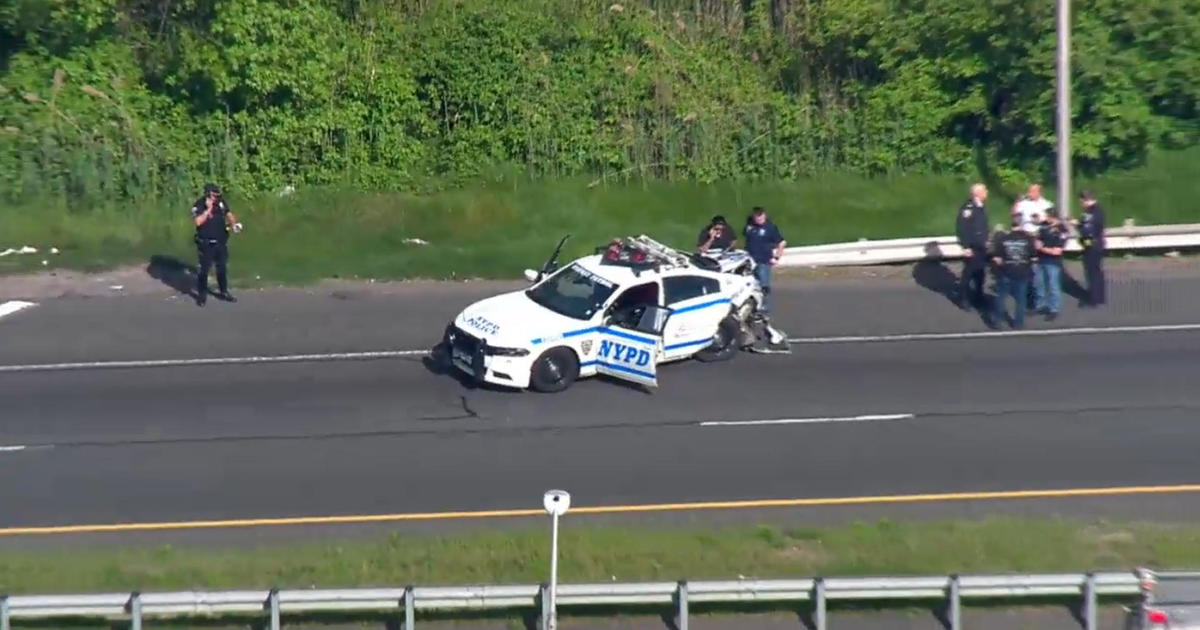Long Island Village Considering Banning Feeding The Geese
PORT WASHINGTON NORTH, N.Y. (CBSNewYork) -- It has become something of a pastime in one Long Island village -- tossing some food to the neighborhood geese.
But officials in Port Washington North are now looking into a ban on the feeding frenzy, CBS2's John Dias reported Tuesday.
It's not their honks that are causing all the headaches. Many locals say its the over abundance of geese leaving behind feces everywhere, and feeding them is making matters worse.
"I think they're a bit of a problem and I think by feeding the geese, it just congregates all of them," Port Washington resident Christina Cotronis said. "They're just in the street and I think they're used to it. I think they're used to being fed."
Village officials are now looking to ban feeding geese on public lands within the village, an idea one mother supports.
"I don't like the geese coming super close to the kids because they're very territorial," resident Sara Kolb said.
MORE: New Jersey Town To Allow Dogs Off Leashes To Battle Geese Poop In Local Park
A growing number of municipalities have already done something similar, but the Port Washington proposal is not backed by everyone. Some say feeding geese is a Long Island tradition. They'd be sad to see it go.
"It's part of nature, exactly that, and I think it's a nice thing to see," resident Carol Whitman said.
Village officials say they're worried about goose droppings and leftover food polluting the waterways. Mayor Bob Weitzner told CBS2 by phone the ban would be a way to clean it up.
"Part of that is making sure that if there's anything on the ground that can get into our sewer system, that ends up into our waterways, that we would do what we can to prevent it," Weitzner said.
Experts said another reason for the ban is because the food people usually feed these animals tends to lead to malnutrition.
"They should be eating their natural foods. It can cause them developmental issues. Maybe their feathers won't develop properly, so they won't even be able to fly," said Leslie Lupo, a wildlife biologist for the Department of Environmental Conservation.
Lupo said the state is already dealing with an overpopulation of Canada geese.
The proposed law is still being drafted, so it's unclear what the penalties will be, Dias reported.
In some nearby areas, a violation can carry a fine of $50 to $1,000.
Residents will get a chance to weigh in on the proposed ban at a public hearing at village hall on March 25 at 7:30 p.m.




